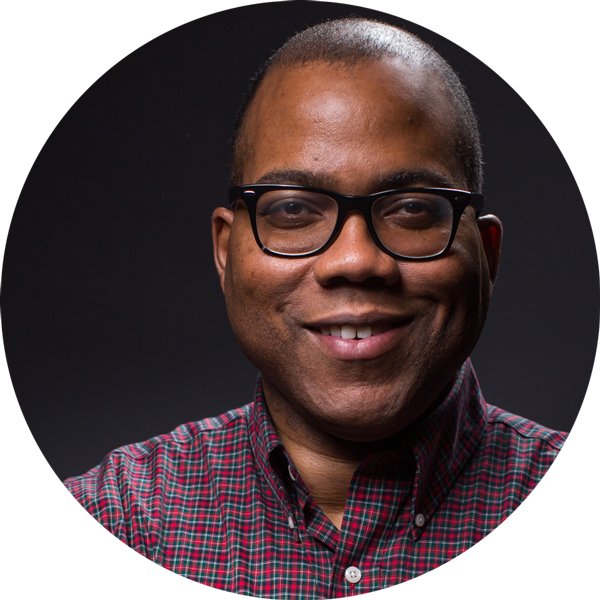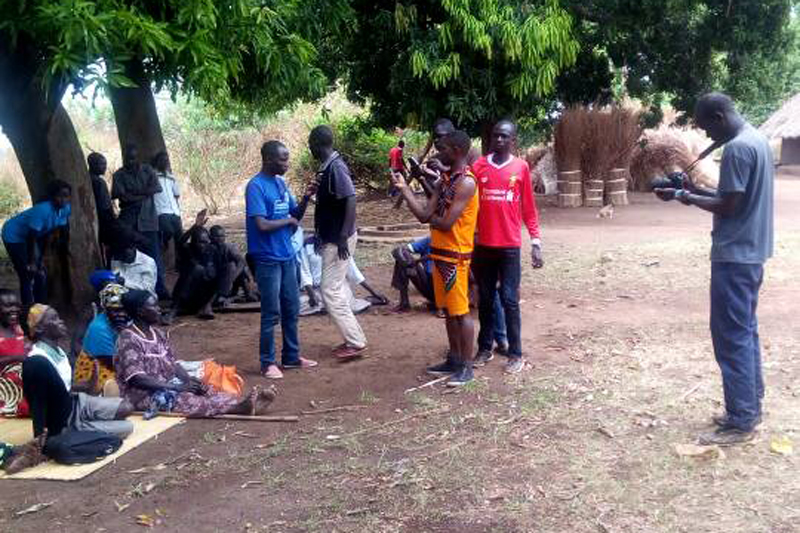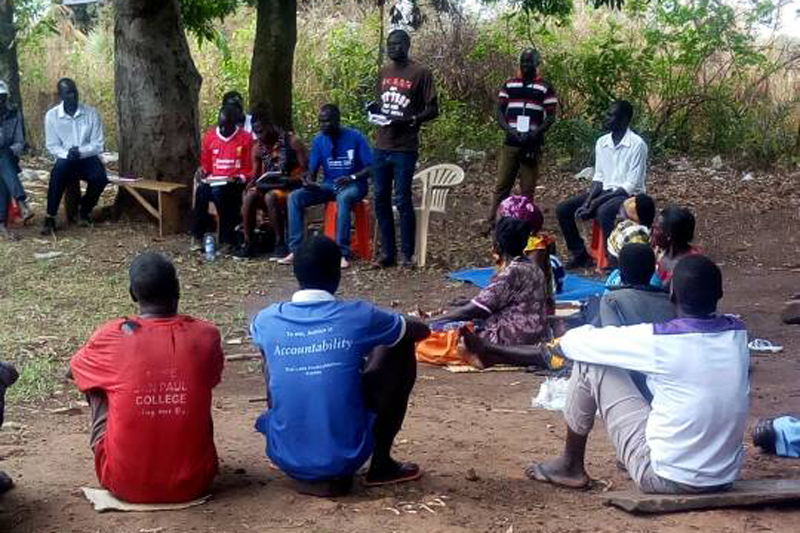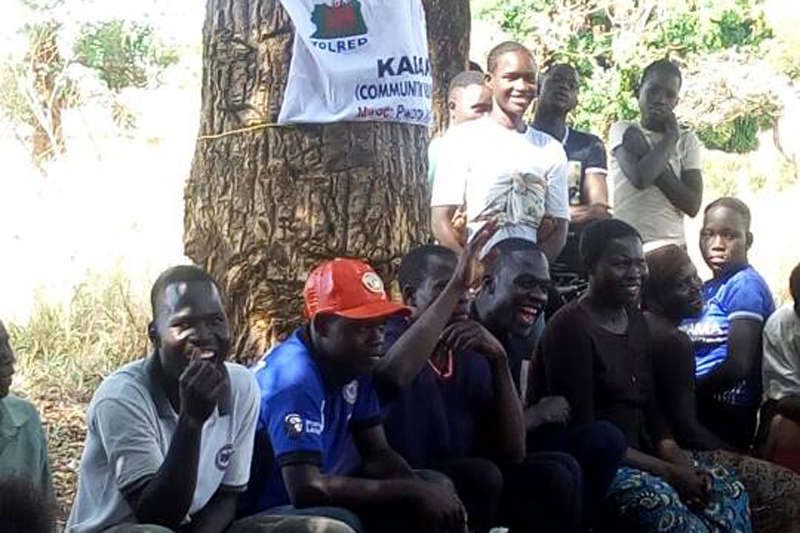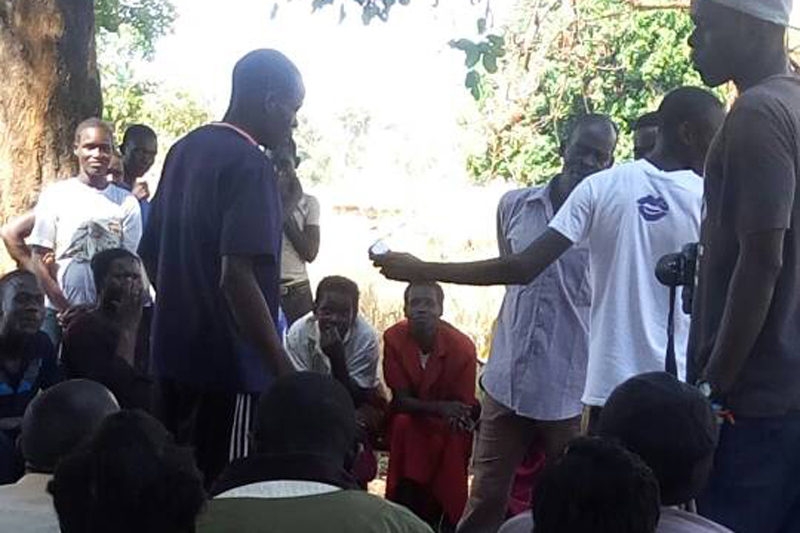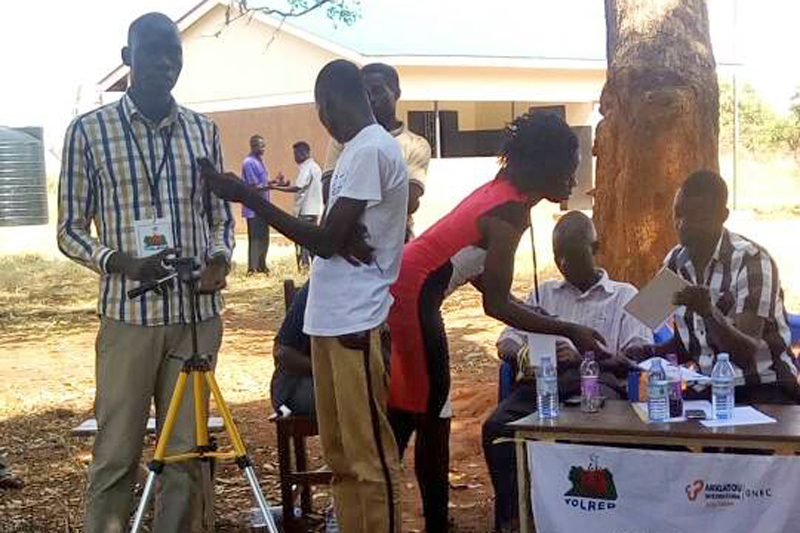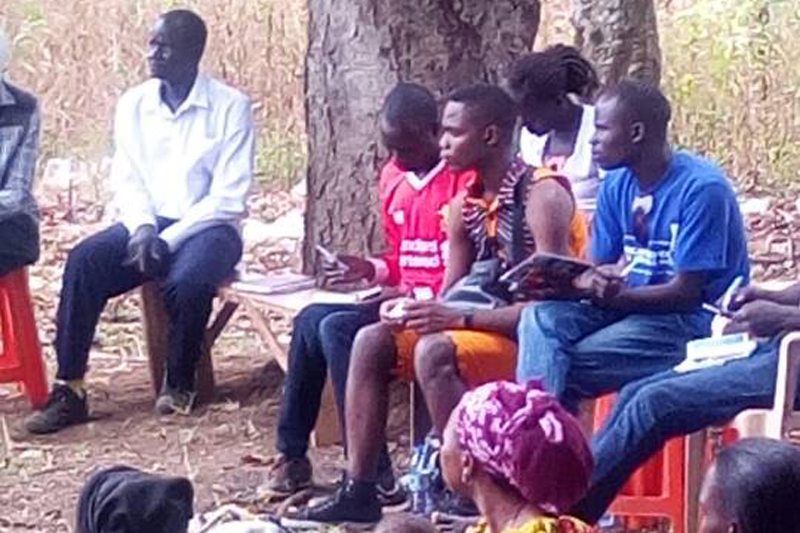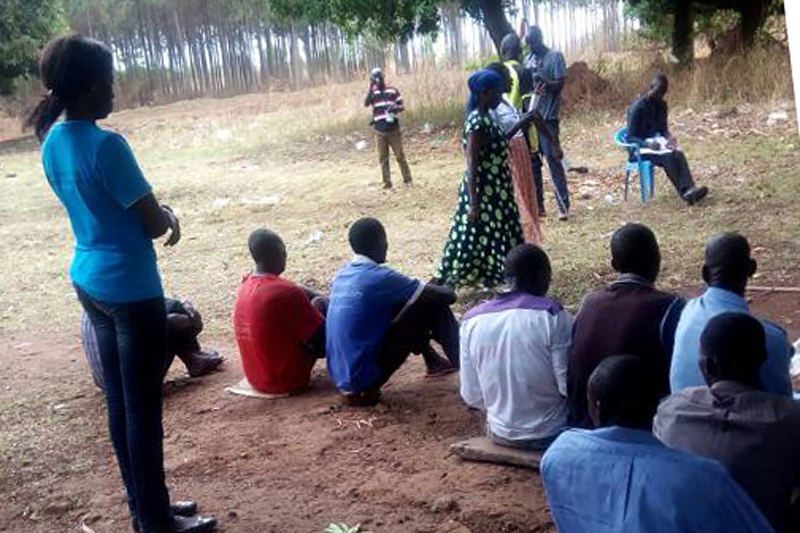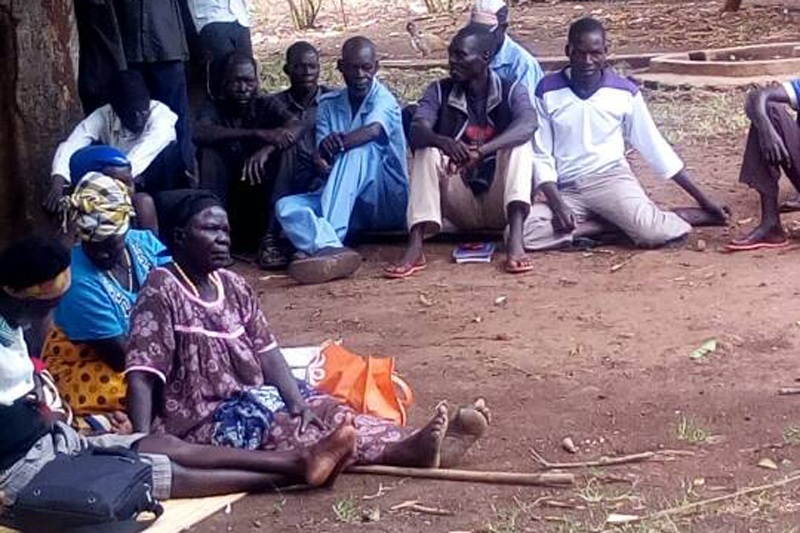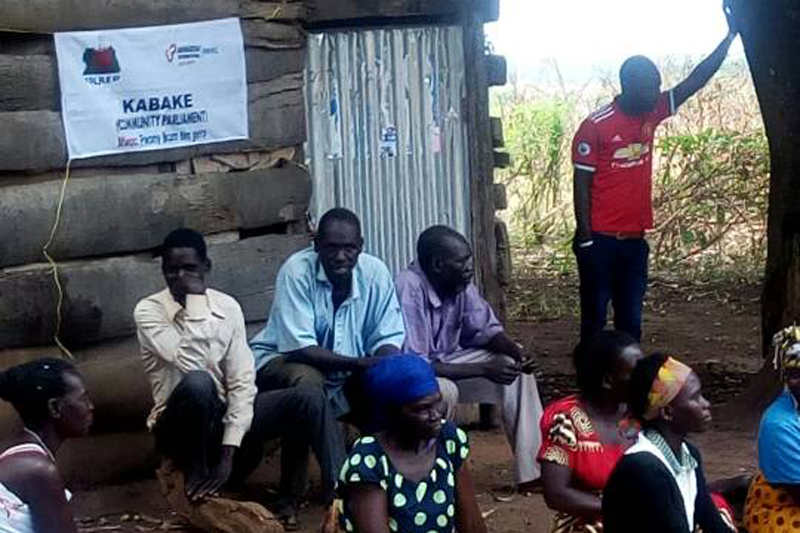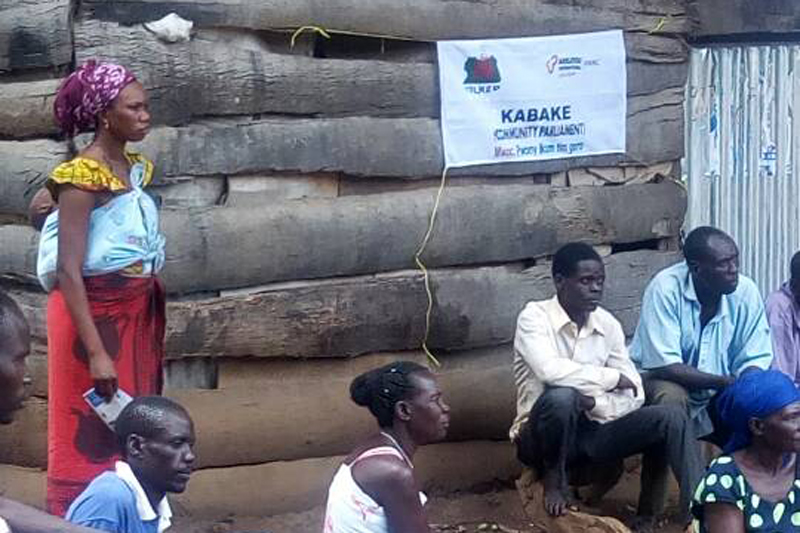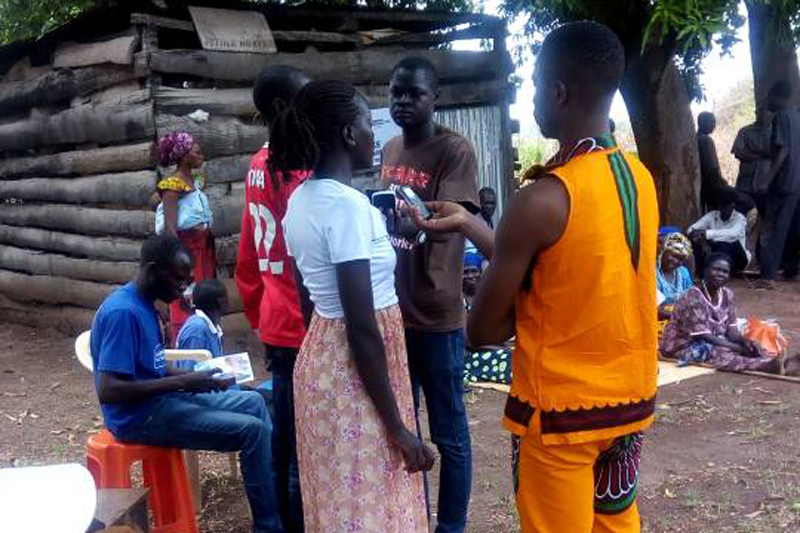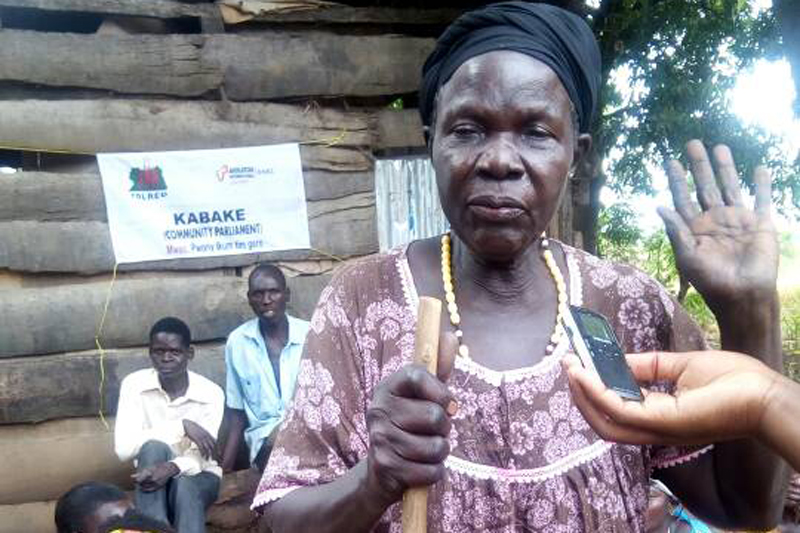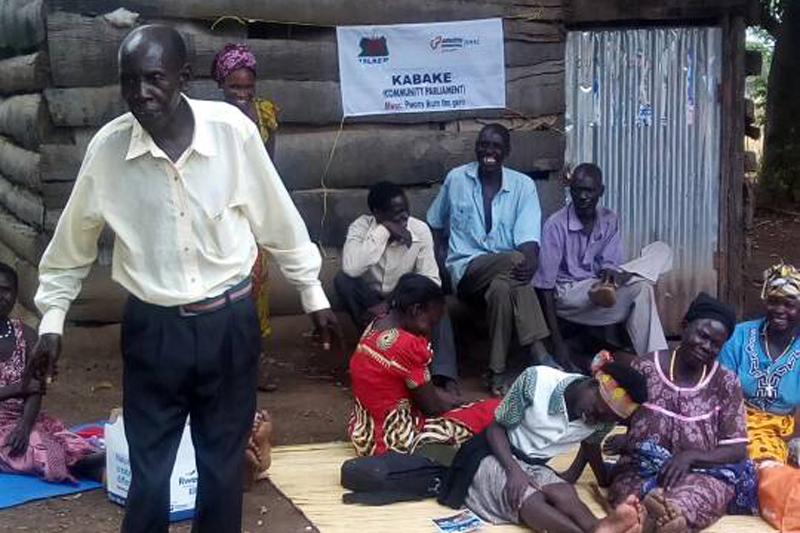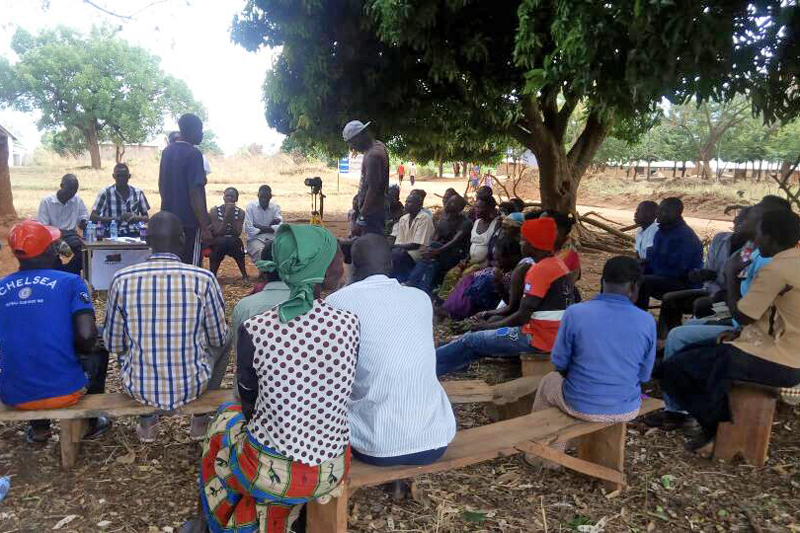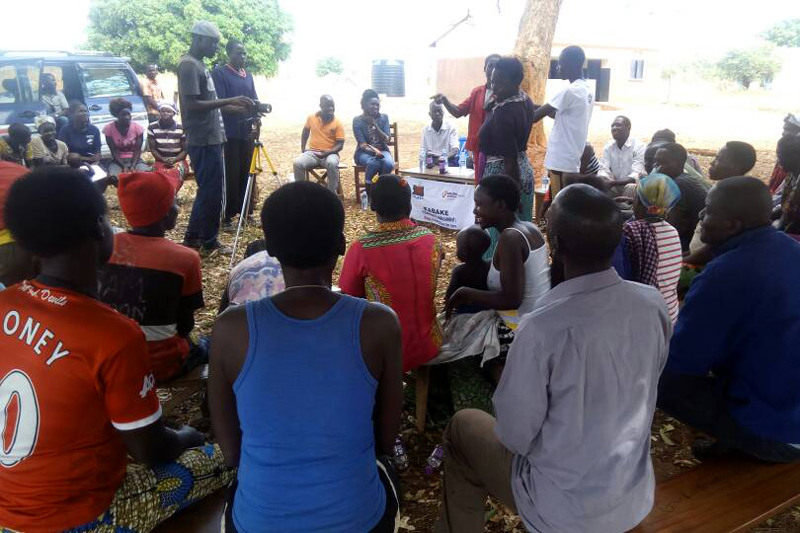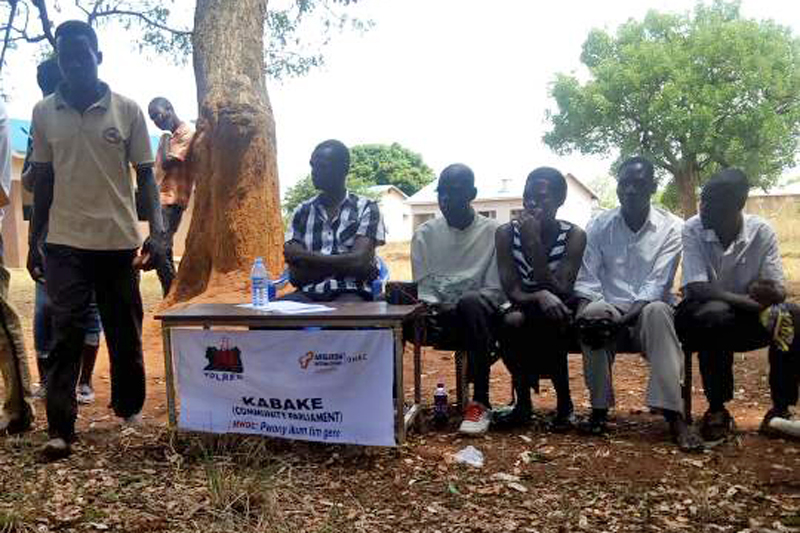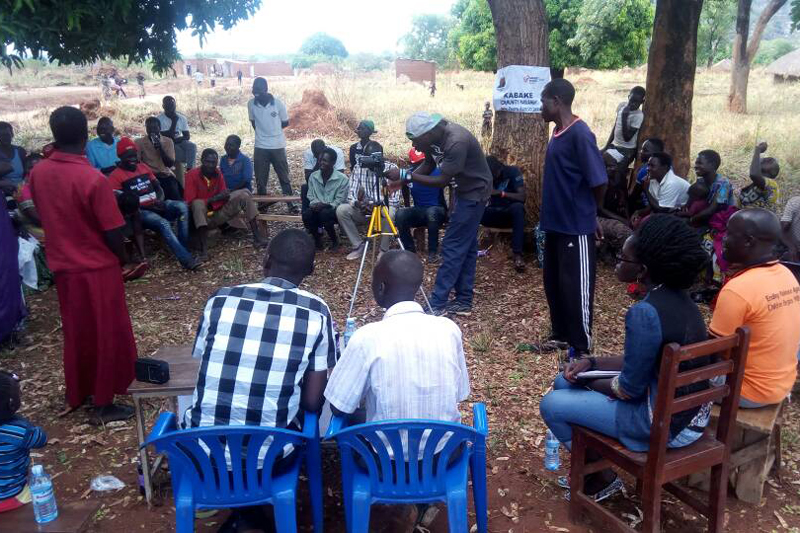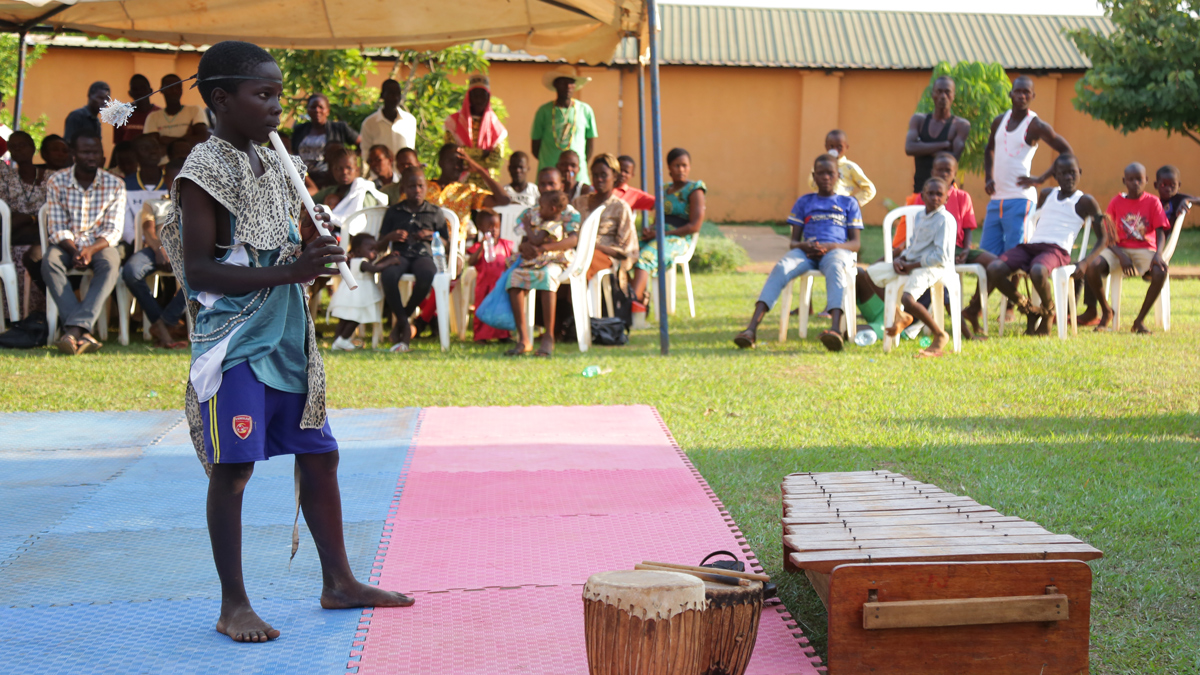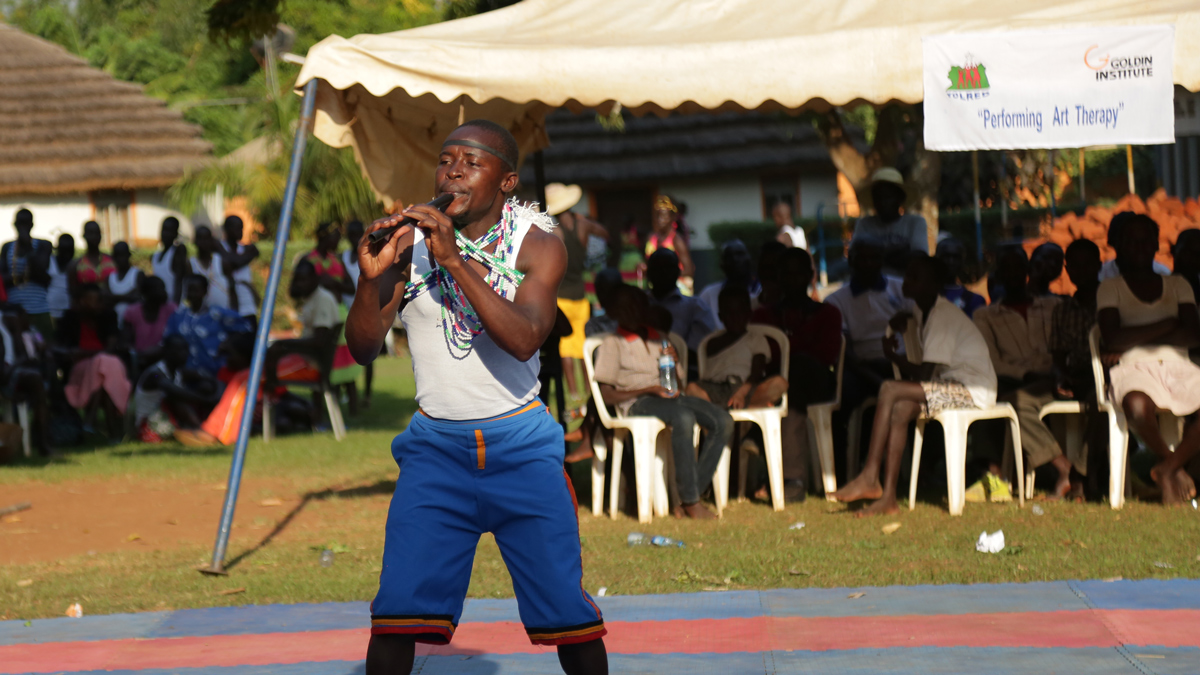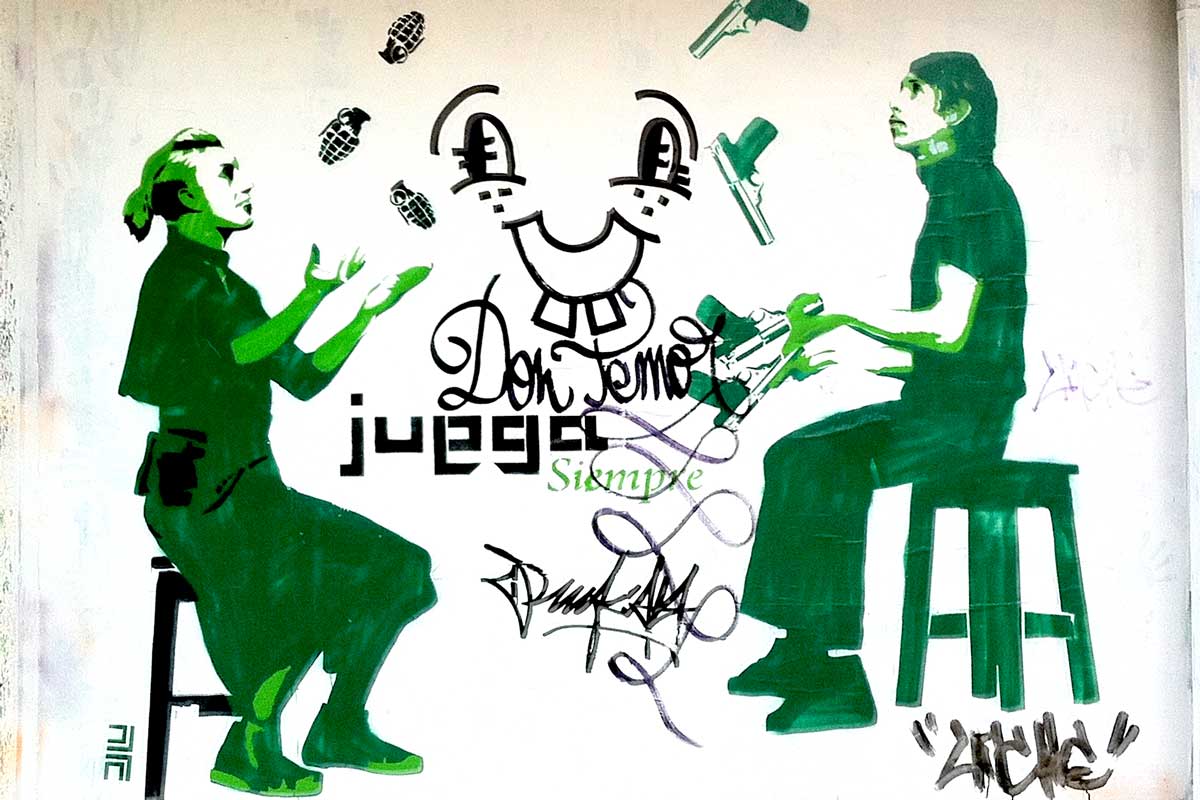Last February, Goldin Institute’s partner in northern Uganda, YOLRED, piloted its first “community parliament” in the villages of Bwongatira, sub-county, parish of Punena/Lukoid; as well as Lamogi sub-county, Gurguru Parish.
“The idea for this came when we were doing the music therapy program," explains Charles Okello, logistics officer and organizational co-founder. YOLRED’s music therapy program for ex-child soldiers and conflict-affected civilians was highlighted at the beginning of the year by the Associated Press, in a story later run by ABC, the New York Times, Washington Post and other media outlets.
As Charles and other YOLRED members fanned across the Gulu District where YOLRED is headquartered to identify the issues residents most sought to have covered in the parliament, a handful of specific concerns were consistently expressed. Among them were stigma experienced by former combatants with the LRA (Lord’s Resistance Army); sexual violence; gender inequality; educational disenfranchisement of ex-child soldiers; land rights challenges; and, the refusal of health services to returning combatants.
"We at YOLRED were also seeking to achieve peaceful alternatives to the various forms of conflict in northern Uganda. By coming together in a 'community parliament' where various opinions and ideas for change can be surfaced, everyday citizens can learn about the challenges endured by victims of the LRA, and end stigmatization." -- Charles Okello
Each of the community parliament sessions drew approximately 100 people, the overwhelming majority of whom were women. The gatherings took place in February and March.
In addition to the civilian participants, journalists, Local Councillors, Community Vice-Chairpersons, victims’ advocates, and Parish Councillors also attended as well.
In mid-March following the two pilot community parliament sessions, YOLRED sponsored a school debating competition at the District Council Hall of Gulu District, including four regional schools. The question of when the community parliaments will continue is a looming question.
“In the due course of doing the community parliament, participants were very excited,” notes Charles Okello. “The exchange was recorded and played on radio stations in Lakody, which could then be heard by people all over the region. People liked it and want more, and if possible most want us to have them once or twice a month. When the next community parliament happens is hard to tell because of the resources to do it are not at hand, so as I speak now we are unable.”
